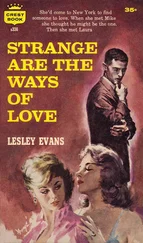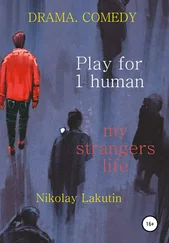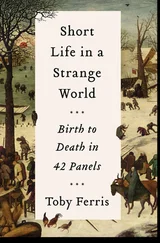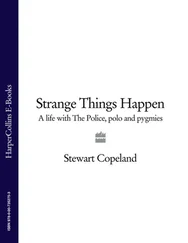Douglas Hofstadter - I Am a Strange Loop
Здесь есть возможность читать онлайн «Douglas Hofstadter - I Am a Strange Loop» весь текст электронной книги совершенно бесплатно (целиком полную версию без сокращений). В некоторых случаях можно слушать аудио, скачать через торрент в формате fb2 и присутствует краткое содержание. Жанр: Прочая документальная литература, на английском языке. Описание произведения, (предисловие) а так же отзывы посетителей доступны на портале библиотеки ЛибКат.
- Название:I Am a Strange Loop
- Автор:
- Жанр:
- Год:неизвестен
- ISBN:нет данных
- Рейтинг книги:4 / 5. Голосов: 1
-
Избранное:Добавить в избранное
- Отзывы:
-
Ваша оценка:
- 80
- 1
- 2
- 3
- 4
- 5
I Am a Strange Loop: краткое содержание, описание и аннотация
Предлагаем к чтению аннотацию, описание, краткое содержание или предисловие (зависит от того, что написал сам автор книги «I Am a Strange Loop»). Если вы не нашли необходимую информацию о книге — напишите в комментариях, мы постараемся отыскать её.
I Am a Strange Loop — читать онлайн бесплатно полную книгу (весь текст) целиком
Ниже представлен текст книги, разбитый по страницам. Система сохранения места последней прочитанной страницы, позволяет с удобством читать онлайн бесплатно книгу «I Am a Strange Loop», без необходимости каждый раз заново искать на чём Вы остановились. Поставьте закладку, и сможете в любой момент перейти на страницу, на которой закончили чтение.
Интервал:
Закладка:
In such cases our will alone, though it pushes us, does not get us what we want. It pushes us in a certain direction, but we are maneuvering inside a hedge maze whose available paths were dictated by the rest of the world, not by our wants. And so we move willy-nilly, but not freewilly-nilly, inside the maze. A combination of pressures, some internal and some external, collectively dictates our pathway in this crazy hedge maze called “life”.
There’s nothing too puzzling about this. And I repeat, there is nothing puzzling about the idea that some of the pressures are our wants. What makes no sense is to maintain, over and above that, that our wants are somehow “free” or that our decisions are somehow “free”. They are the outcomes of physical events inside our heads! How is that free?
There’s No Such Thing as a Free Will
When a male dog gets a whiff of a female dog in heat, it has certain extremely intense desires, which it will try extremely hard to satisfy. We see the intensity only too clearly, and when the desire is thwarted (for instance, by a fence or a leash), it pains us to identify with that poor animal, trapped by its innate drives, pushed by an abstract force that it doesn’t in the least understand. This poignant sight clearly exemplifies will, but is it free will?
How do we humans have anything that transcends that dog-like kind of yearning? We have intense yearnings, too — some of them in the sexual arena, some in more exalted arenas of life — and when our yearnings are satisfied, we attain some kind of happy state, but when they are thwarted, we are forlorn, like that dog on a tight leash.
What, then, is all the fuss about “free will” about? Why do so many people insist on the grandiose adjective, often even finding in it humanity’s crowning glory? What does it gain us, or rather, what would it gain us, if the word “free” were accurate? I honestly do not know. I don’t see any room in this complex world for my will to be “free”.
I am pleased to have a will, or at least I’m pleased to have one when it is not too terribly frustrated by the hedge maze I am constrained by, but I don’t know what it would feel like if my will were free. What on earth would that mean? That I didn’t follow my will sometimes? Well, why would I do that? In order to frustrate myself? I guess that if I wanted to frustrate myself, I might make such a choice — but then it would be because I wanted to frustrate myself, and because my meta-level desire was stronger than my plain-old desire. Thus I might choose not to take a second helping of noodles even though I — or rather, part of me — would still like some, because there’s another part of me that wants me not to gain weight, and the weight-watching part happens (this evening) to have more votes than the gluttonous part does. If it didn’t, then it would lose and my inner glutton would win, and that would be fine — but in either case, my non-free will would win out and I’d follow the dominant desire in my brain.
Yes, certainly, I’ll make a decision, and I’ll do so by conducting a kind of inner vote. The count of votes will yield a result, and by George, one side will come out the winner. But where’s any “freeness” in all this?
Speaking of George, the analogy to our electoral process is such a blatant elephant in the room that I should spell it out. It’s not as if, in a brain, there is some kind of “neural suffrage” (“one neuron, one vote”); however, on a higher level of organization, there is some kind of “desirelevel suffrage” in the brain. Since our understanding of brains is not at the state where I can pinpoint this suffrage physically, I’ll just say that it’s essentially “one desire, n votes”, where n is some weight associated with the given desire. Not all values of n are identical, which is to say, not all desires are born equal; the brain is not an egalitarian society!
In sum, our decisions are made by an analogue to a voting process in a democracy. Our various desires chime in, taking into account the many external factors that act as constraints, or more metaphorically, that play the role of hedges in the vast maze of life in which we are trapped. Much of life is incredibly random, and we have no control over it. We can will away all we want, but much of the time our will is frustrated.
Our will, quite the opposite of being free, is steady and stable, like an inner gyroscope, and it is the stability and constancy of our non-free will that makes me me and you you, and that also keeps me me and you you. Free Willie is just another blue humpback.

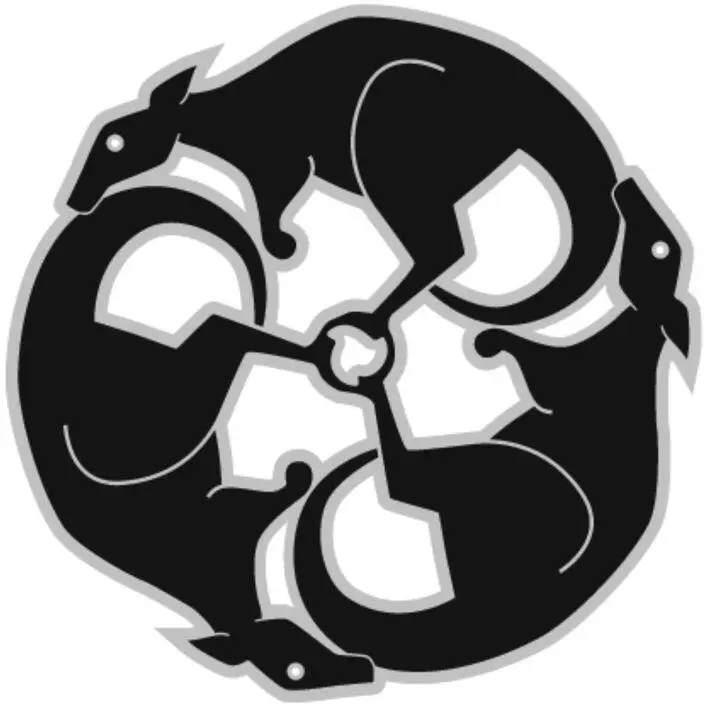
CHAPTER 24
On Magnanimity and Friendship

Are There Small and Large Souls?
HERE and there in this book, alluding to James Huneker’s droll warning to “small-souled men” quoted in Chapter 1, I have somewhat light-heartedly referred to the number of “hunekers” comprising various human souls, but I have never been specific about the kinds of traits a highhuneker or low-huneker soul would tend to exhibit. Indeed, any hint at such a distinction risks becoming inflammatory, because in our culture there is a dogma that states, roughly, that all human lives are worth exactly the same amount.
And yet we violate that dogma routinely. The most obvious case is that of a declared war, where as a society we officially slip into an alternate collective mode in which the value of the lives of a huge subset of humanity is suddenly reduced to zero. I needn’t spell this out because it is so blatant. Another clear violation of our dogma is capital punishment, where society collectively chooses to terminate a human life. Basically, society has judged that a certain soul merits no respect at all. Short of capital punishment, there is incarceration, where society treats people with many different levels of dignity or lack thereof, implicitly showing different levels of respect for different-sized souls. Consider also the phenomenal differences in the measures taken by physicians in attempting to save lives. A head of state (or the head of any large corporation) who has a heart attack will receive far better care than a random citizen, not to mention an illegal alien.
Why do I see such unequal treatments by society as tacit distinctions between the values of souls ? Because I think that wittingly or unwittingly, we all equate the size of a living being’s soul with the “objective” value of that being’s life, which is to say, the degree of respect that we outsiders pay to that being’s interiority. And we certainly do not place equal values on all beings’ lives! We don’t hesitate for a moment to draw a huge distinction between the values of a human life and an animal life, and between the values of the lives of different “levels” of animals.
Thus most humans willingly participate, directly or indirectly, in the killing of animals of many different species and the eating of their flesh (sometimes even mixing together fragments of the bodies of pigs, cows, and lambs in a single dish). We also nonchalantly feed our pets with pieces of the bodies of animals we have killed. Such actions establish in our minds, obviously, a hierarchy within the realm of animal souls (unless someone were to argue in good old black-and-white style that the word “soul” does not even apply to animals, but such absolutism seems to me more like received dogma than like considered reflection).
Читать дальшеИнтервал:
Закладка:
Похожие книги на «I Am a Strange Loop»
Представляем Вашему вниманию похожие книги на «I Am a Strange Loop» списком для выбора. Мы отобрали схожую по названию и смыслу литературу в надежде предоставить читателям больше вариантов отыскать новые, интересные, ещё непрочитанные произведения.
Обсуждение, отзывы о книге «I Am a Strange Loop» и просто собственные мнения читателей. Оставьте ваши комментарии, напишите, что Вы думаете о произведении, его смысле или главных героях. Укажите что конкретно понравилось, а что нет, и почему Вы так считаете.



